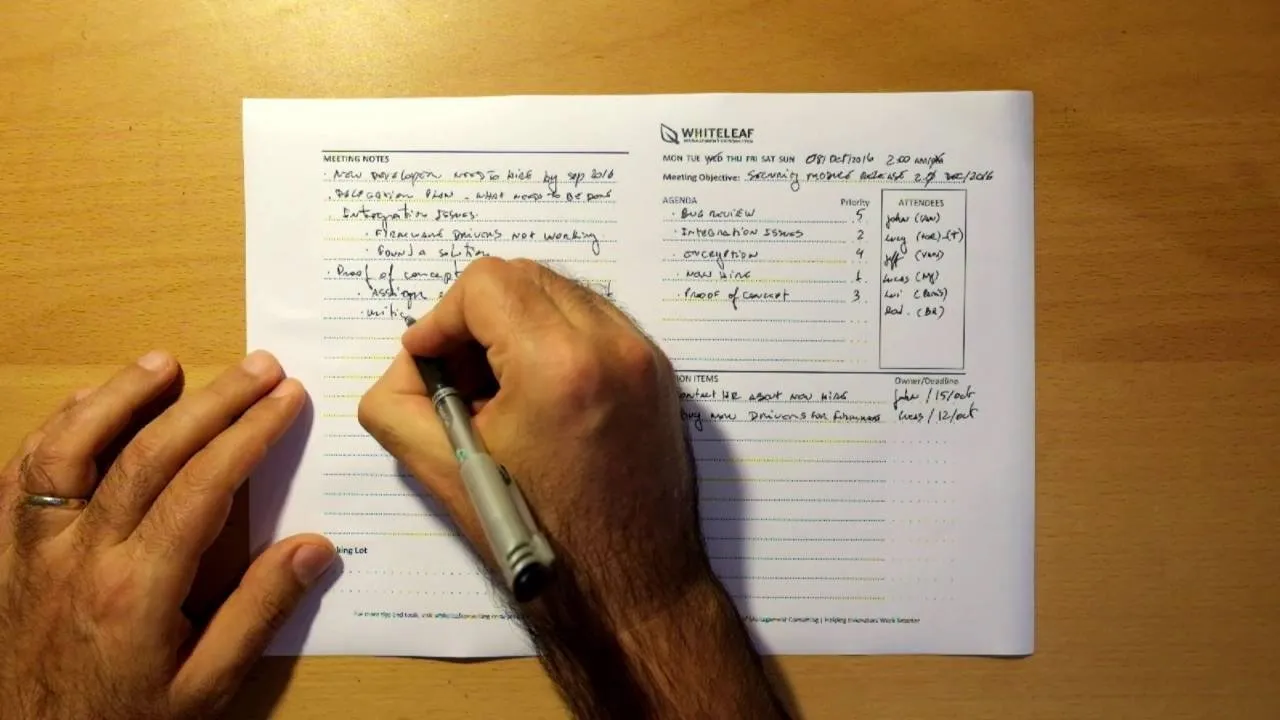Minutes are the records of decisions and discussions that are made at a meeting and these minutes can be used later again as a source of reference if there is a query or you need to make sure about certain decisions.

Try to write the minutes as soon after the meeting as possible while everything is fresh in your mind. Review your outline and if necessary, add additional notes or clarify points raised. Also check to ensure all decisions, actions and motions are clearly noted.
Minutes must be:
- A factual summary of decisions etc. discussed and made at the meeting
- Written in the past tense
Minutes must give:
- Details on any resignations (people leaving the company) and appointments (new people)
- Details of tasks given to certain people - what must they do, when must it be done etc.
- Details on any financial discussions or transactions that take place
Make sure that you:
- Write a heading with the name of the business/body
- Write the date and time of the meeting
- Make a note of who joined the meeting and who were absent and for what reason
- Make short notes on the discussions and decisions made
- Have the minutes signed by the chairman or the secretary
Outline of the format of the minutes of a meeting:
- Name of the business/body, place and date the meeting takes place
- Opening and register - who opened the meeting, who attended and who were absent
- Read the minutes of the previous meeting - This is done so that all the people attending are up to date with what were said and discussed and accepted at the previous meeting.
- Reading of the agenda - the agenda gives the different points that will be discussed at the meeting
- What is said and by whom on the different points discussed
- What decision has been made and accepted
- What jobs/instructions has been given to whom and when must it be completed
- Who closed the meeting and at what time
- Name and signature of the chairperson running the meeting and a place to sign
- Name and signature of the secretary and a place to sign
Remember this is an important document that people can use for referral or even somebody that missed the meeting can read it to get up to date.
You can take notes in short, but must be written in such a way that who ever did not attend will still understand what was said and decided.
Exercise - You were the secretary at the meeting of the dance committee at school. You have a meeting to discuss the planning.
Look at the following information and compile your own minutes from this
- The chairman is Andrew Smith
- You are the secretary
- There were 8 people present and Peter Small and James Smith were absent
- A date, place, theme, music, cost and invitations for the dance were discussed
- Certain people were given jobs
- Liza Evert are responsible for the music
- Tins Phele is responsible for the invitations
- Fatima Pillay is responsible for the venue
